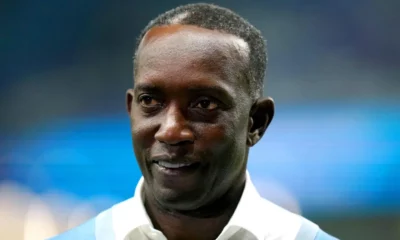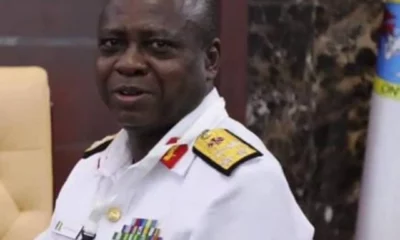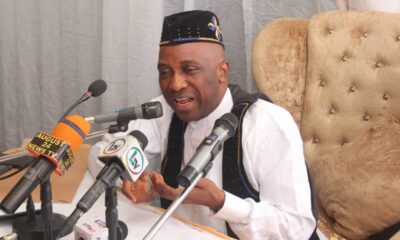The judge in the George Floyd murder case refused a defence request to immediately sequester the jury Monday, the morning after the killing of a Black man during a traffic stop triggered unrest in a suburb just outside Minneapolis.
The request came from the attorney for former Minneapolis police Officer Derek Chauvin. Defence attorney Eric Nelson argued that the jurors could be influenced by the prospect of what might happen as a result of their verdict.
“Ultimately, your honour, the question becomes will the jury be competent to make a decision regardless of the potential outcome of their decision,” Nelson said.
Read more:
Police fire tear gas at protesters angry over officer’s killing of Black Minnesota man
Judge Peter Cahill said he will not sequester the jurors until next Monday, when he anticipates closing arguments will begin. He also denied a defence request to question jurors about what, if anything, they may have seen about unrest following Sunday’s police shooting of 20-year-old Daunte Wright in Brooklyn Center.
In the wake of the shooting, hundreds of protesters broke into businesses, jumped on police cars and hurled rocks and other objects at police in Brooklyn Center. Officers in riot gear fired gas and flash-bang grenades.
Prosecutor Steve Schleicher argued against sequestering the jury in the Floyd case, saying: “I don’t think that would be an effective remedy.”


The judge in the Floyd case had previously asked jurors to avoid news during the trial.
The ruling came as the trial entered its third week, with the prosecution close to wrapping up its case and giving way to the start of the defence. Prosecutors built their on searing witness accounts, experts rejecting Chauvin’s use of a neck restraint, and medical authorities attributing Floyd’s death to a lack of oxygen.
Derek Chauvin, 45, who is white, is charged with murder and manslaughter in Floyd’s May 25 death. Police had been called to a neighbourhood market where Floyd was accused of trying to pass a counterfeit bill.
Read more:
‘SNL’ tackles Derek Chauvin trial, systemic racism with spoofed newscast cold open
Prosecutors Chauvin had his knee on Floyd’s neck as the 46-year-old Black man lay pinned to the pavement for 9 1/2 minutes.
Bystander video of Floyd, pinned by Chauvin and two other officers as he cried, “I can’t breathe!” and eventually grew still sparked protests and scattered violence around the U.S.


Chauvin’s attorney has argued that Floyd’s death was caused by drug use and underlying health conditions, including heart disease. He is expected to call his own medical experts after the prosecution wraps its case, expected early this week. Nelson hasn’t said whether Chauvin will testify.
The second week of the trial was dominated by technical testimony, beginning with senior Minneapolis police officials, including Chief Medaria Arradondo, testifying that Chauvin’s restraint of Floyd violated department policy.
Must See
-
Other Sports
/ 4 months agoTransfer: Galatasaray target January move for Onyedika
Turkish Super Lig champions Galatasaray are lining up a January move for Club Brugge...
By Amaka Esther -




Other Sports
/ 4 months agoMan Utd too big for you – Ten Hag told to leave club
Former Tottenham Hotspur star, Darren Bent has claimed that Manchester United are too big...
By Amaka Esther -




Other Sports
/ 4 months agoEPL: Yorke tells Ten Hag not to allow Man Utd star near first team
Manchester United legend Dwight Yorke has told manager Erik ten Hag not to allow...
By Amaka Esther








